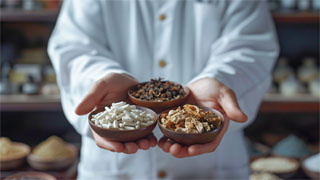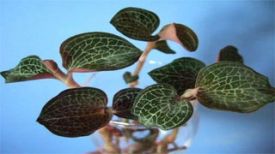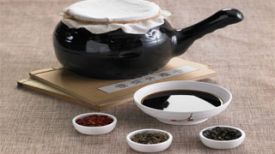
The Yellow Emperor asked, "When a person's dwelling is disturbed and timid, does their pulse also change?" Qi Bo replied, "The fear of mortals and the stillness of labor are all changes. When they walk at night, they gasp for breath from the kidneys, and when they have a fear of falling, they gasp for breath from the liver, and when they have a fear of falling, they gasp for breath from the lungs, and when they cross the water, they gasp for breath from the kidneys and bones. At that time, the brave will have their breath, and when they are timid, they will become sick. Therefore, it is said that the way to diagnose a disease is to observe a person's courage, timidity, flesh and skin, and understand their emotions, which is the diagnostic method. Chapter 21 of the Treatise on Meridians and Channels
Let's first take a look at the original text: "The Yellow Emperor asked, 'When a person's dwelling is quiet and restless, how does their pulse change?' Qi Bo replied, 'The fear of mortals and the stillness of labor are all changes. When they walk at night, they gasp for breath from the kidneys, and when they have fallen into fear, they gasp for breath from the liver, and when they have lewd breath, they harm the spleen. When they have fear, they gasp for breath from the lungs, and when they cross the water and fall, they gasp for breath from the kidneys and bones. At that time, the courage of the brave will move, and when they are timid, they will become sick. Therefore, it is said that the way to diagnose a disease is to observe a person's bravery, timidity, flesh and skin, and understand their emotions, and use it as a
The Yellow Emperor asked, "Does the movement and weakness of a person's dwelling cause changes in their pulse?" This means that the living environment, work and rest conditions, and strength of the human body are different. In this situation, will the qi and blood of the human body change accordingly? Qibo said to each other, 'The fear of mortals and the stillness of labor are all forms of change.'. Qi refers to anger, labor refers to fatigue, movement refers to activity, and stillness refers to quietness. In other words, when people are frightened, angry, or tired, they either move or remain quiet. In this case, the qi and blood of the meridians will be affected. Starting from this point, let's use wheezing as an analogy: wheezing comes from the kidneys, wheezing comes from the liver, wheezing comes from the lungs, wheezing comes from the kidneys and bones, and so on. The following examples will illustrate this issue.
The first example given is' If one walks at night, they will gasp for breath from the kidneys and suffer from lung diseases due to sexual dysfunction '. That is to say, when traveling at night, there were no streetlights or roads in ancient times. Many people used to walk at night under the light of the moon. The ancients said that if the moon was dark and the wind was high, it would not be so bright anymore and would be covered by dark clouds. The wind was still strong, and walking on the road at night would make them easy to be afraid. This time is called "panting from the kidneys when walking at night". This "wheezing" refers to a disease, now called asthma. In ancient times, wheezing included asthma, as well as symptoms such as shortness of breath, mouth opening, and shoulder lifting. Of course, in ancient times, wheezing and wheezing were separated. Asthma has wheezing sounds, and wheezing mainly refers to the symptom of rapid breathing, which affects lung qi and breathing. This is called wheezing from the kidneys.
In the future, it will be called "lewd qi disease lung". What does lewd qi refer to? It is the excess of qi that causes harm, which is called licentious qi. Zhang Jiebin's annotation: "Excessive use is called licentiousness", which means that excessive evil qi can cause disorder of the body's internal qi and blood. At this time, it is a disease of the lungs, and lung qi is prone to problems, so it is called wheezing.
Further down, there is a fear of falling, wheezing from the liver, and lewd qi harming the spleen. If one falls from a high place to the ground, they will become fearful and easily lose their breath. If they lose their breath, they will gasp for breath from the liver. If their qi and blood are disrupted, it will damage the spleen. Startled, gasping for breath from the lungs, and feeling heartbroken with lust. If, due to fear, one breathes out of the lungs at this time and their breath becomes disordered, it can damage the heart. Going further, 'Crossing the water and falling, panting from the kidneys and bones'. When crossing the water, if one fails to protect oneself or accidentally falls, asthma may arise from the kidneys and bones. If one suffers from asthma at this time, it may be a problem with the kidneys and bones. When it is the right time, that is, in this situation, "the brave will move, and the timid will fall ill. A hero is a person with a particularly strong body, abundant qi and blood, and smooth circulation of qi and blood. Illness will heal on its own. When qi and blood flow freely, the illness will heal on its own. This is called the Qi movement of a hero, which means that the illness has ended or the body has recovered. In ancient times, it meant the end. What does' already 'refer to in this place? As mentioned earlier, wheezing from the kidneys, lung diseases caused by excessive qi, or wheezing from the liver, excessive qi harming the spleen, etc. These pathological conditions will naturally end, and the body will recover because of the smooth flow of qi and blood. This is the way for a brave person to act.
The second one is called 'Those who are timid will suffer from illness'. Cowardice refers to being physically weak and having a weak heart, in which case qi and blood are easily trapped. When qi and blood are stagnant, evil energy will remain inside the body, called 'causing illness by doing'. This work, which is similar to the same work, means that if left here, this evil energy will cause this disease. We have encountered many clinical patients, who are like young and energetic people with very good health. For example, after playing basketball, they also take off their clothes and let the cold wind blow. Their bodies are particularly healthy and their qi and blood are particularly strong. After blowing, they return to the dormitory without any problems. Some people also sweat profusely after playing basketball, take off their clothes, go shirtless, and let the wind blow, but they can't do it. The next morning, they wake up with neck pain and fall on their pillows. After a while, they have cervical problems and go to the hospital to see if they have cervical spondylosis. Some people also experience these symptoms in their neck and shoulders. If one is older, it is possible to trigger problems such as shoulder periarthritis, cervical spondylosis, etc., which is called 'those who are timid may suffer from the disease'. That is to say, if the body's qi and blood are not so strong, allowing evil qi to invade will leave the root of the disease. This is the difference between brave and cowardly emphasized in the Yellow Emperor's Inner Canon here.
A hero is someone with a particularly healthy body, abundant Qi and blood, and a strong overall sense of righteousness. Those who are timid are those with weaker bodies and insufficient qi and blood, and these two must be treated differently. We also encounter patients in outpatient clinics with particularly strong Qi and blood, occasionally experiencing a slight imbalance. You can help them with a little adjustment and they will recover quickly. They think your medical skills are very good. Some patients are already deficient in Qi and blood, lacking in righteous energy and vitality. You have been using various methods such as traditional Chinese medicine, dietary therapy, and health preservation to regulate them for a long time, but they still haven't improved after a long time. Why? He himself is a coward with insufficient Qi and blood. In this situation, simply regulating his balance is not enough. You need to supplement his Qi and blood, which is not a simple task. Supplementing Qi and blood is a gradual process. What are the prerequisites? You can't hurt, you can't stay up late or get angry.
The movement and stillness of a person's dwelling place make them brave and timid, and their pulse also changes accordingly. The movement and stillness of a person's fearful labor can affect their qi and blood. During the medication period, one should not experience mood swings, stay up late, check their phone less, have a regular diet, avoid overeating or hunger, avoid eating excessively cold or stimulating foods, and also cooperate with reasonable exercise and sleep. Only in this situation can qi and blood gradually replenish, which still takes a long time. We have seen some cases of famous doctors in ancient times. Some famous doctors give patients medicine, which may last for three years, and the patient's qi and blood can slowly replenish. These are called timid people. timid people are difficult to treat, and it is difficult to cure. When encountering this situation, it is necessary to explain it to the patient and let them do a good job of health preservation. It cannot be said that they are treating the disease at the same time, so the bottom line is: "Therefore, the way to diagnose a disease is to observe the courage and timidity of the patient, the skin and bones, to understand their condition, and to think of the diagnosis method. When diagnosing a disease, it is necessary to observe the strength or weakness of the human body, as well as the condition of the bones, flesh, and skin. We all know that the kidneys govern the bones, the spleen governs the flesh, and the lungs govern the fur. By observing the bones, flesh, and skin, and the condition of the internal organs, we can comprehensively understand the condition. This is an important diagnostic method and key, which is the meaning of this paragraph


